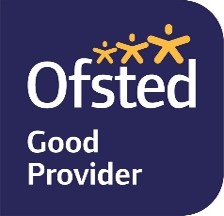Assessing phonics and 'Keep up' interventions
Ongoing phonics assessments and ‘Keep up’ interventions
At the Whiteoak Academies, daily formative assessment plays a vital role in the early identification of any pupils who are in danger of falling behind in their phonics learning.
Over the past year, we have invested heavily in the ‘Supporting the lowest 20%’ training delivered by our local English Hub. This has provided our staff with a sound understanding of an array of short, targeted interventions as recommended by Unlocking Letters and Sounds. These interventions are delivered with identified children at least three times a day on a one-to-one basis, with the aim that they will ‘keep up’ rather than having to ‘catch up’.
More summative assessments are completed every new term, assessing grapheme-phoneme correspondence and word reading. The impact of interventions feeds into this, so it is very much a working document between summative assessment points. Pupil progress meetings ensure that the Reading Lead can keep track of pupil progress and support teachers in ensuring accelerated progress for those falling behind.
Staff at The Whiteoak Academies are skilled in ensuring the full engagement of all pupils within the whole class phonics lesson. As part of this, they may determine that certain children sit within the teacher’s direct eye-line or more closely to a supporting TA or have additional scaffolds to assist them.
Supporting pupils who are new to the school
When a new child starts their journey at The Whiteoak Academies, it is essential that we establish quickly where they are in terms of their phonics knowledge. This will be done by listening to the child read and carrying out a phonics assessment where necessary.
Ensuring a successful transition from Year 2 to 3 and beyond
We recognise that a strong transition programme between Years 2 and 3 is essential for success across the curriculum, but especially in reading. Our Year 3 and 4 teachers and selected members of support staff across Key Stage 2 have received accredited phonics training. This ensures that the strength in our phonics programme does not come to an abrupt halt because the children have entered the junior phase of their education. Furthermore, our intervention programme continues, with the same recognisable format and consistent approach for pupils, until the point when they become fluent readers.






